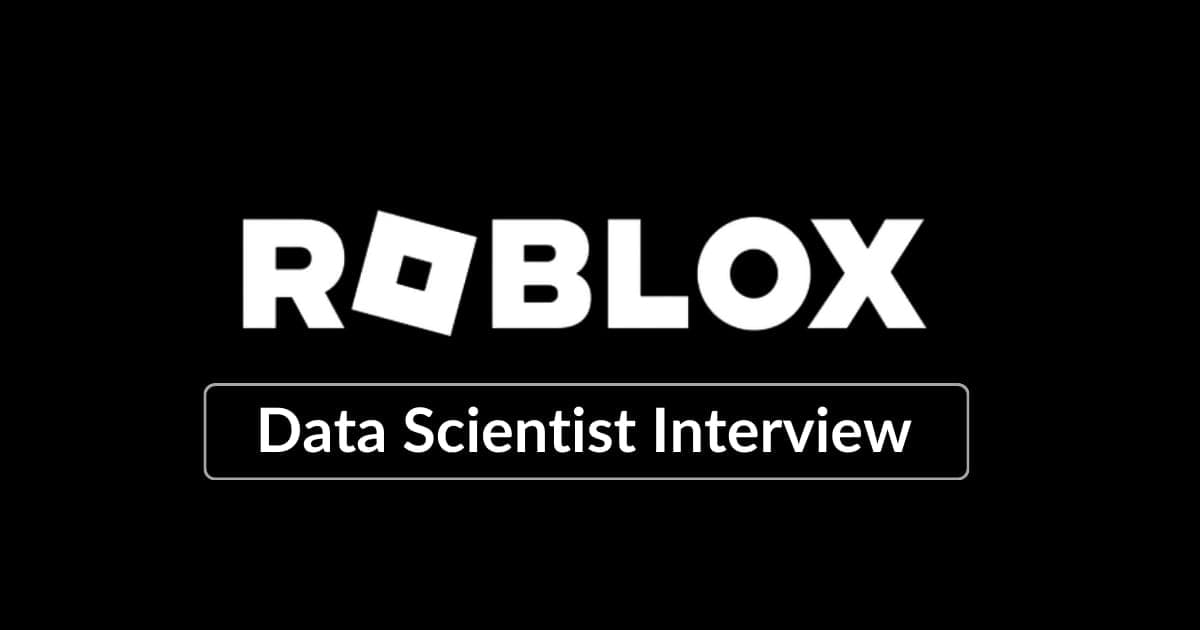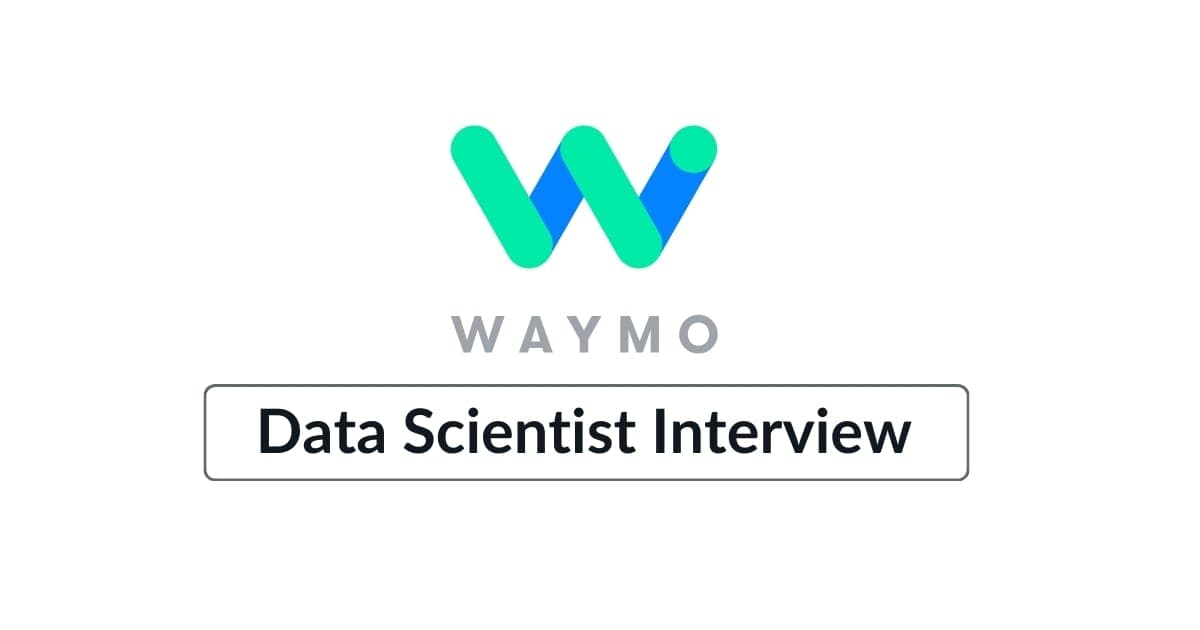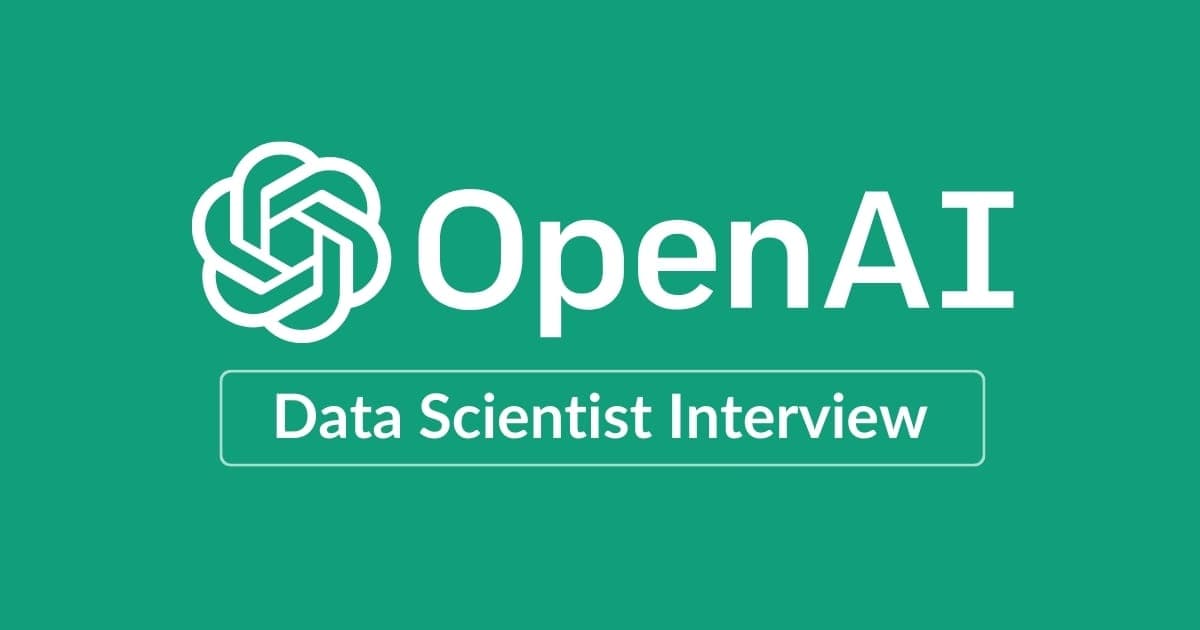Are you preparing for a Data Scientist interview at Tesla? This comprehensive guide will provide you with insights into Tesla's interview process, the essential skills required, and strategies to help you excel in your interview.
As a leader in sustainable energy and innovation, Tesla seeks data scientists who can leverage their technical expertise and analytical skills to drive impactful business decisions. Understanding Tesla's unique approach to interviewing will give you a significant advantage, whether you're an experienced data professional or just starting your career in data science.
In this guide, we will explore the interview structure, highlight the types of questions you can expect, and share valuable tips to help you navigate each stage with confidence.
Let’s dive in 👇
1. Tesla Data Scientist Job
1.1 Role Overview
At Tesla, Data Scientists are pivotal in driving the company's mission to accelerate the world's transition to sustainable energy. This role requires a unique blend of technical prowess, analytical skills, and a strategic mindset to extract insights that inform critical business decisions. As a Data Scientist at Tesla, you will collaborate with cross-functional teams to tackle complex challenges and contribute to the development of innovative solutions that enhance Tesla's products and services.
Key Responsibilities:
- Design and implement data-driven projects to optimize Tesla's supply chain and production processes.
- Develop and maintain data pipelines and warehousing systems to ensure seamless data flow and accessibility.
- Analyze large datasets to identify trends and provide actionable insights for improving product reliability and performance.
- Create and maintain dashboards and visualizations to communicate findings to stakeholders across engineering, marketing, and finance.
- Conduct studies to predict service repair, replacement, and maintenance needs using data-driven approaches.
- Collaborate with engineering and business teams to integrate data science solutions into Tesla's products and strategies.
- Ensure data quality and build robust ETL processes to support analytics deliverables.
Skills and Qualifications:
- Proficiency in SQL, Python, and data manipulation tools such as Pandas and Pyspark.
- Experience with machine learning algorithms and statistical modeling techniques.
- Expertise in data visualization tools like Tableau, Power BI, or similar platforms.
- Strong understanding of reliability engineering and physics of failure principles.
- Ability to manage end-to-end projects, including roadmap creation and impact assessment.
- Excellent communication skills to translate data insights into strategic recommendations.
1.2 Compensation and Benefits
Tesla offers a competitive compensation package for Data Scientists, reflecting its commitment to attracting top talent in the data, machine learning, and AI fields. The compensation structure includes a base salary, stock options, and performance bonuses, which together create a robust total compensation package.
Example Compensation Breakdown by Level:
| Level Name | Total Compensation | Base Salary | Stock (/yr) | Bonus |
|---|---|---|---|---|
| P1 (Entry-Level Data Scientist) | $102K | $94.5K | $6.8K | $875 |
| P2 (Data Scientist) | $142K | $127K | $15K | $0 |
| P3 (Senior Data Scientist) | $199K | $153K | $39.1K | $6.8K |
| P4 (Staff Data Scientist) | $317K | $196K | $105K | $15.4K |
Additional Benefits:
- Participation in Tesla’s stock programs, including restricted stock units (RSUs) and stock options.
- Comprehensive health, dental, and vision insurance.
- Retirement savings plans with company matching.
- Flexible work hours and remote work options.
- Employee discounts on Tesla products and services.
Tips for Negotiation:
- Research compensation benchmarks for data scientist roles in your area to understand the market range.
- Consider the total compensation package, which includes stock options, bonuses, and benefits alongside the base salary.
- Highlight your unique skills and experiences during negotiations to maximize your offer.
Tesla’s compensation structure is designed to reward innovation, collaboration, and excellence. For more details, visit Tesla’s careers page.
2. Tesla Interview Process and Timeline
Average Timeline: 4-8 weeks
2.1 Resume Screen (1-2 Weeks)
The first stage of Tesla’s Data Scientist interview process is a resume review. Recruiters assess your background to ensure it aligns with the job requirements. Given the competitive nature of this step, presenting a strong, tailored resume is crucial.
What Tesla Looks For:
- Proficiency in Python, SQL, and advanced statistical methods.
- Experience with machine learning, data visualization, and handling large datasets.
- Projects that demonstrate innovation, problem-solving, and business impact.
Tips for Success:
- Highlight experience with data modeling, machine learning, and statistical analysis.
- Emphasize projects involving real-world data science applications and business solutions.
- Use keywords like "data-driven insights," "machine learning models," and "statistical analysis."
- Tailor your resume to showcase alignment with Tesla’s mission of innovation and sustainability.
Consider a resume review by an expert recruiter who works at FAANG to enhance your application.
2.2 Recruiter Phone Screen (30 Minutes)
In this initial call, the recruiter reviews your background, skills, and motivation for applying to Tesla. They will provide an overview of the interview process and discuss your fit for the Data Scientist role.
Example Questions:
- Why do you want to work at Tesla?
- What makes you a good fit for this role here at Tesla?
- How do you deal with tight deadlines and multiple priorities?
Prepare a concise summary of your experience, focusing on key accomplishments and alignment with Tesla’s mission.
2.3 Technical Screen (45-60 Minutes)
This round evaluates your technical skills and problem-solving abilities. It typically involves coding exercises, statistical questions, and discussions on data science concepts.
Focus Areas:
- Programming: Proficiency in Python, R, and SQL.
- Statistical Analysis: Understanding of statistical methods and their applications.
- Machine Learning: Discuss model evaluation, feature engineering, and data modeling.
Preparation Tips:
Practice coding and statistical questions to enhance your problem-solving skills. Consider technical interview coaching by an expert coach who works at FAANG.
2.4 Onsite Interviews (3-5 Hours)
The onsite interview typically consists of multiple rounds with data scientists, managers, and cross-functional partners. Each round is designed to assess specific competencies.
Key Components:
- Coding and Technical Challenges: Solve exercises that test your ability to manipulate and analyze data effectively.
- Real-World Business Problems: Address complex scenarios involving data science applications and business solutions.
- Behavioral Interviews: Discuss past projects, collaboration, and adaptability to demonstrate cultural alignment with Tesla.
Preparation Tips:
- Review core data science topics, including machine learning algorithms and statistical modeling.
- Research Tesla’s products and services, and think about how data science could enhance them.
- Practice structured and clear communication of your solutions, emphasizing actionable insights.
For Personalized Guidance:
Consider mock interviews or coaching sessions to simulate the experience and receive tailored feedback. This can help you fine-tune your responses and build confidence.
Tesla Data Scientist Interview Questions
1. Probability & Statistics Questions
Probability and statistics questions at Tesla assess your understanding of statistical methods and your ability to apply them to real-world scenarios.
Example Questions:
- A fair six-sided die is rolled twice. What is the probability of getting 2 on the first roll and not getting 4 on the second roll?
- There are 100 products and 25 of them are bad. What is the confidence interval?
- What do the Z and t-tests entail, and what are their applications, differences, and guidelines for choosing one over the other?
- Given a dataset of battery degradation rates for different Tesla models, how would you perform hypothesis testing to compare their performance?
- Explain the concept of multi-cloud and hybrid cloud architectures and their benefits and challenges.
For more on statistics, check out the Applied Statistics Course.
2. Machine Learning Questions
Machine learning questions evaluate your knowledge of algorithms, model building, and problem-solving techniques applicable to Tesla’s products and services.
Example Questions:
- What is your experience with machine learning?
- How do you approach data modelling?
- What does entropy mean in the context of decision tree algorithms?
- Can you share an instance where you identified a limitation in a data science model and worked to improve its performance?
- How would you design a machine learning model to predict customer churn for Tesla’s subscription services?
Enhance your machine learning skills with the Machine Learning Course.
3. Coding Questions
Coding questions assess your ability to write efficient and effective code to solve complex problems.
Example Questions:
- Reverse a string but ignore special characters.
- Reverse a linked list in-place recursively and return the new head pointer.
- Write a command-line program to evaluate a set of equations.
- Write a function to find the value of the nearest common parent in a binary tree given two node values (value1 and value2).
- Write a function that returns the missing number in the array given an array of integers, nums of length n spanning 0 to n with one missing.
4. Business Case Studies
Business case studies evaluate your ability to apply data-driven insights to solve business problems and propose actionable solutions.
Example Questions:
- Case study related question about remanufacturing data.
- Tell me about a complex data science problem you tackled in a previous role. What was your approach?
- Can you discuss a specific challenge Tesla faces? How would you propose using data science to address it?
- How would you identify potential biases in a study claiming an airline named Jetco has the fastest airline boarding times, and suggest investigation areas?
- How do you stay up-to-date with the latest advancements in data science and machine learning?
Learn how to approach business cases with the Case in Point Course.
5. SQL Questions
SQL questions assess your ability to manipulate and analyze data using complex queries. Below are example tables Tesla might use during the SQL round of the interview:
Vehicle Sales Table:
| SaleID | Model | SaleDate | Price | CustomerID |
|---|---|---|---|---|
| 1 | Model S | 2023-01-15 | 79999 | 101 |
| 2 | Model 3 | 2023-02-20 | 39999 | 102 |
| 3 | Model X | 2023-03-10 | 89999 | 103 |
Customer Table:
| CustomerID | Name | Country | JoinDate |
|---|---|---|---|
| 101 | John Doe | USA | 2022-11-01 |
| 102 | Jane Smith | Canada | 2023-01-10 |
| 103 | Emily Johnson | UK | 2023-02-05 |
Example Questions:
- Total Sales: Write a query to calculate the total sales revenue by model.
- Recent Customers: Write a query to find customers who joined in the last 30 days.
- High-Value Sales: Write a query to identify sales transactions above $50,000.
- Customer Sales: Write a query to list all sales made to a specific customer.
- Country Sales: Write a query to determine the total sales revenue by country.
You can practice SQL questions on DataInterview SQL pad.
4. How to Prepare for the Tesla Data Scientist Interview
4.1 Understand Tesla’s Business Model and Products
To excel in open-ended case studies at Tesla, it’s crucial to understand their business model and product offerings. Tesla is not just an automotive company; it’s a leader in sustainable energy solutions, offering products like electric vehicles, solar energy systems, and energy storage solutions.
Key Areas to Understand:
- Product Lines: Familiarize yourself with Tesla’s range of electric vehicles, solar products, and energy storage solutions.
- Innovation Focus: How Tesla integrates data science to enhance product reliability, performance, and customer experience.
- Sustainability Mission: Tesla’s commitment to accelerating the world’s transition to sustainable energy and how data science supports this mission.
Understanding these aspects will provide context for tackling business case questions, such as optimizing supply chain processes or improving product performance through data-driven insights.
4.2 Master Tesla’s Product Metrics
Familiarity with Tesla’s product metrics is essential for excelling in technical and business case interviews.
Key Metrics:
- Performance Metrics: Vehicle range, battery efficiency, and energy consumption rates.
- Reliability Metrics: Failure rates, maintenance schedules, and service repair predictions.
- Customer Metrics: Customer satisfaction scores, retention rates, and feedback analysis.
These metrics will help you navigate product case questions and demonstrate your understanding of data’s impact on Tesla’s business decisions.
4.3 Align with Tesla’s Mission and Values
Tesla’s mission is to accelerate the world’s transition to sustainable energy. Aligning your preparation with this mission is key to showcasing your cultural fit during interviews.
Core Values:
- Innovation, sustainability, and excellence.
- Collaboration across diverse teams and disciplines.
- Dedication to data-driven decision-making and problem-solving.
Showcase Your Fit:
Reflect on your experiences where you:
- Used data to create sustainable solutions.
- Innovated on existing processes or products.
- Collaborated effectively with diverse teams to achieve shared goals.
Highlight these examples in behavioral interviews to authentically demonstrate alignment with Tesla’s mission and values.
4.4 Strengthen Your SQL and Coding Skills
Tesla emphasizes technical rigor, making SQL and programming proficiency essential for success in their data science interviews.
Key Focus Areas:
- SQL Skills:
- Master joins (INNER, LEFT, RIGHT).
- Practice aggregations (SUM, COUNT, AVG) and filtering with
GROUP BYandHAVING. - Understand window functions (RANK, ROW_NUMBER).
- Build complex queries using subqueries and Common Table Expressions (CTEs).
- Programming Skills:
- Python: Focus on data manipulation with pandas and NumPy.
- Machine Learning: Brush up on libraries like scikit-learn for model building and evaluation.
Preparation Tips:
- Practice SQL queries on real-world scenarios, such as vehicle sales and customer analysis.
- Use platforms like DataInterview SQL pad for additional practice!
- Be ready to explain your logic and optimization strategies during coding challenges.
4.5 Practice with a Peer or Interview Coach
Simulating the interview experience can significantly improve your confidence and readiness. Mock interviews with a peer or coach can help you refine your answers and receive constructive feedback.
Tips:
- Practice structuring your answers for business case and technical questions.
- Review common behavioral questions to align your responses with Tesla’s values.
- Engage with professional coaching services such as DataInterview.com for tailored, in-depth guidance and feedback.
Consider engaging with coaching platforms like DataInterview.com for tailored preparation. Mock interviews will help you build communication skills, anticipate potential challenges, and feel confident during Tesla’s interview process.
5. FAQ
- What is the typical interview process for a Data Scientist at Tesla?
The interview process generally includes a resume screening, a recruiter phone screen, a technical interview, and onsite interviews. The entire process typically spans 4-8 weeks. - What skills are essential for a Data Scientist role at Tesla?
Key skills include proficiency in SQL and Python, experience with machine learning algorithms, statistical modeling, and data visualization tools like Tableau or Power BI. A strong understanding of reliability engineering and data pipeline management is also crucial. - How can I prepare for the technical interviews?
Focus on practicing SQL queries, coding challenges in Python, and understanding machine learning concepts. Review statistical methods and be prepared to discuss how you would apply data science to real-world problems, particularly in the context of Tesla's products. - What should I highlight in my resume for Tesla?
Emphasize your experience with data-driven projects, machine learning applications, and any relevant work that demonstrates your ability to solve complex problems. Tailor your resume to reflect alignment with Tesla’s mission of sustainability and innovation. - How does Tesla evaluate candidates during interviews?
Candidates are assessed on their technical skills, problem-solving abilities, and cultural fit. Tesla places a strong emphasis on innovation, collaboration, and the ability to translate data insights into actionable business strategies. - What is Tesla’s mission?
Tesla’s mission is "to accelerate the world’s transition to sustainable energy," which is central to its operations and product development. - What are the compensation levels for Data Scientists at Tesla?
Compensation for Data Scientists at Tesla ranges from approximately $102K for entry-level positions to $317K for senior roles, including base salary, stock options, and performance bonuses. - What should I know about Tesla’s business model for the interview?
Understanding Tesla’s focus on electric vehicles, solar energy solutions, and energy storage systems is essential. Familiarity with how data science can optimize supply chain processes and enhance product performance will be beneficial for case study questions. - What are some key metrics Tesla tracks for success?
Key metrics include vehicle performance metrics (e.g., battery efficiency, range), reliability metrics (e.g., failure rates, maintenance schedules), and customer satisfaction scores. - How can I align my responses with Tesla’s mission and values?
Highlight experiences that demonstrate your commitment to sustainability, innovation, and collaboration. Discuss how you have used data to drive impactful solutions that align with Tesla’s goals of enhancing product reliability and customer experience.



